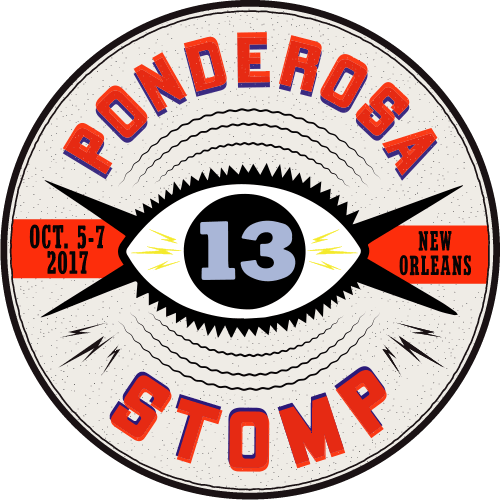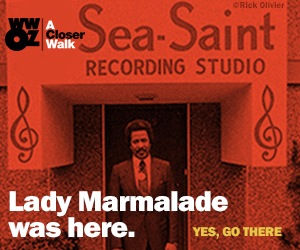 The scene: An historic crossroads in Chalmette, where St. Bernard Highway meets Paris Road, under the unearthly, Mordor-like glow of the Chalmette Refinery, in a parish where so many ghosts still tiptoe on the fringes of our consciousness: French land barons. West African slaves. Canary Island fishermen. Creole dandies. Kaintuck riflemen. Bloodied British invaders. Sicilian truck farmers. Mobbed-up political bosses. At this crossroads sits a roadhouse that has operated under numerous names, in myriad incarnations: now called Old Brad’s Nite Life. It was there last Sunday evening that I took an unforgettable musical ride on a runaway R&B freight train: the Midnight Streetcar.
The scene: An historic crossroads in Chalmette, where St. Bernard Highway meets Paris Road, under the unearthly, Mordor-like glow of the Chalmette Refinery, in a parish where so many ghosts still tiptoe on the fringes of our consciousness: French land barons. West African slaves. Canary Island fishermen. Creole dandies. Kaintuck riflemen. Bloodied British invaders. Sicilian truck farmers. Mobbed-up political bosses. At this crossroads sits a roadhouse that has operated under numerous names, in myriad incarnations: now called Old Brad’s Nite Life. It was there last Sunday evening that I took an unforgettable musical ride on a runaway R&B freight train: the Midnight Streetcar.

Munsch sings in a rich tenor that suddenly and effortlessly swoops and flutters heavenward into a spine-tingling upper register that breaks the sound barrier to nail his versions of Tan Canary classics such as “I Won’t Cry” and “Reconsider Me.” Sonic celestial orgasm, and then diving back down to the terra firma of his sweet tenor voice. It is simply criminal that a vocal talent like Munsch’s is not playing the Ritz-Carlton or the Blue Room. And Munsch is a seasoned showman, wandering amid the packed dancefloor and tables with a cordless microphone and coaxing out sing-alongs. But then, this man is a pure professional, having honed his natural talent over many years in mainstay Metairie nightclubs like Chesterfield’s and Critic’s Choice.

And throughout this musical journey stood the Streetcar conductor, the wiry visionary Cullen Landry, silently plucking away at his standup bass, his silver hair and ruddy face shrouded in shadow but clearly transported to another realm by the music of his youth as he anchored down the groove of his musical henchmen.
The band was fleshed out by other solid, standout players such as Larry Simpson on saxophone, Willie Panker on drums, and Nat Montalbano on guitar. Who else would you want to have cranking out all the New Orleans classics? And it was a magical night filled with a hit parade of New Orleans’ rich musical tapestry of the 1950s and ’60s.
Later that evening, I thought back to the classic Preservation Hall band lineups of the 1960s and ’70s. The musicians in those bands—like clarinetist George Lewis, trombonist Jim Robinson, and trumpeter Percy Humphrey—were children playing at the feet of the jazz originators (Bolden, Armstrong, Morton, Bechet) when they created that earth-shaking sound in the early 1900s. And we know that band today as the real deal. Likewise, Cullen Landry and his cohorts were once pimply teenagers playing at the feet of the rock originators—the heroes of their youth like Guitar Slim, Fats Domino, and Lloyd Price—at the CYO dances at St. Anthony’s, St. Dominic, and Germania Hall. Today we know Midnight Streetcar as the real deal in New Orleans R&B. Go see them.





Ok,
Lakeview, You sold me on Brads Nite Life…
moreover the description of Chalmette after dark..
just stumbled on this blog; will be back; good stuff here and good writing;
tl